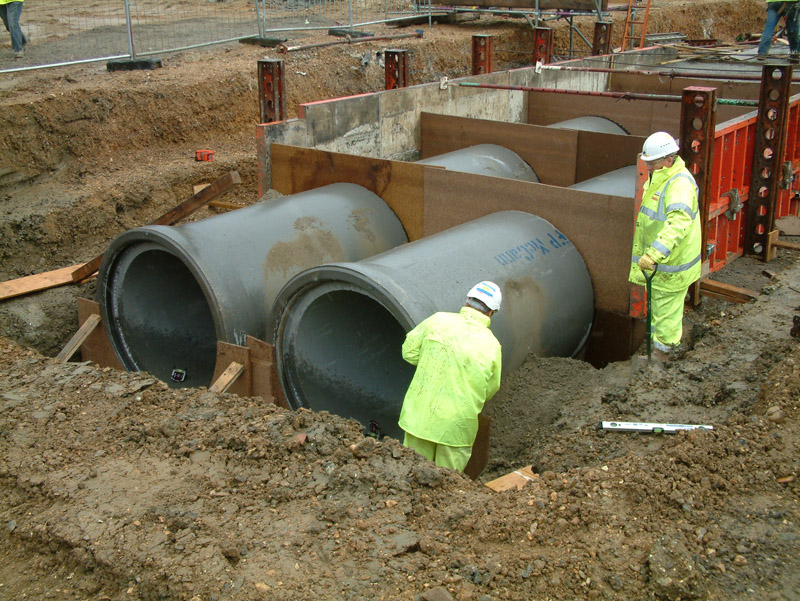Definition
The purpose of urban drainage systems (a.k.a. collection systems) is to enable safe and reliable disposal of stormwater runoff (i.e., they are at the first place used for pluvial flood protection) and removal of wastewater from urban areas. These systems can be either combined, separate or hybrid. They can be in the form of open channels or closed conduits. The term ‘sewers’ usually refers to the network of closed conduits (i.e., piped systems) which are used to convey the flow from a certain area, whereas the term ‘sewerage’ refers to the entire wastewater/stormwater system infrastructure in the particular city. The key elements of urban drainage systems are: reticulation or collection networks (pipes, rising mains, channels, culverts, manholes, etc.), gully inlets (a.k.a., catchpits), ventilation shafts, chambers and tanks, combined sewer overflows and sanitary sewer overflows, outfalls, controls (orifices, gates, penstocks, vortex regulators, flap valves, etc.), pumping stations, bifurcations, weirs, inverted siphons, treatment and other ancillary structures, storages (offline, online, open, closed, above-ground, below-ground, retention and detention ponds), watercourses, boverland flow paths and designated floodplains, dams, multipurpose tunnels and so on (Vojinovic Z., 2015, p. 97).Co-benefits and impacts
Apart from preventing water accumulation, drainage systems have also the advantages to reduce soil erosion and remove toxic materials and disease organisms by draining the contaminated water away. However, urban litter can be a major problem for the functioning of urban drainange systems. Once it enters the drainage system, the litter is potentially able to travel via the stormwater pipes or channel, either until it eventually reaches the receiving water or creates an obstruction and creates blockages along the way.(Vojinovic Z., 2015, p. 97)
Flood management measure
The parent measure, in terms of this measure being a subcategory of the parent one
Case studies
-
Anavargos, Pafos, Storm drainage, Κύπρος
-
Kissonerga, Pafos, Storm drainage, Κύπρος
-
Υφιστάμενα Αντιπλημμυρικά Έργα ΣΑΛΑ, Κύπρος
-
Conventional urban drainage systems, Marbella
-
Yeroskipou - Koloni, Pafos, Storm drainage, Κύπρος
-
Konia, Pafos, Storm drainage, Κύπρος
-
Lempa, Pafos, Storm drainage, Κύπρος
-
Chloraka, Pafos, Storm drainage, Κύπρος
-
Emba, Pafos, Storm drainage, Κύπρος
-
Νέα αντιπλημμυρικά έργα (ΣΑΛΑ), Κύπρος
Last modified: Sept. 19, 2016, 5:24 a.m.


 Ελληνικά
Ελληνικά
